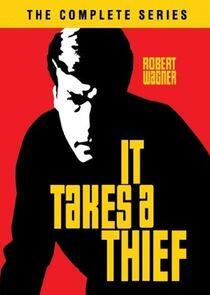
Fred Astaire
As a dancer, he was known for his uncanny sense of rhythm, creativity, effortless presentation, and tireless perfectionism, which was sometimes a burden to co-workers. His dancing showed elegance, grace, originality, and precision. He drew influences from many sources, including tap, classical dance, and the elevated style of Vernon and Irene Castle. His trademark style greatly influenced the American Smooth style of ballroom dance. He called his eclectic approach "outlaw style", a following of an unpredictable and instinctive muse. His motion was economical, yet endlessly nuanced.
Astaire's most memorable dancing partnership was with Ginger Rogers, with whom he co-starred in ten Hollywood musicals during the classic age of Hollywood cinema, including Top Hat (1935), Swing Time (1936), and Shall We Dance (1937). Astaire's fame grew in films like Holiday Inn (1942), Easter Parade (1948), The Band Wagon (1953), Funny Face (1957), and Silk Stockings (1957). For his performance in Irwin Allen and John Guillermin's disaster film, The Towering Inferno (1974), Astaire received his only competitive Academy Award nomination for Best Supporting Actor, and he won the Golden Globe Award for Best Supporting Actor – Motion Picture and the BAFTA Award for Best Actor in a Supporting Role.
Astaire received several honors including an Academy Honorary Award in 1950, the Golden Globe Cecil B. DeMille Award in 1960, the Film Society of Lincoln Center tribute in 1973, the Kennedy Center Honors in 1978, and AFI Life Achievement Award in 1980. He was inducted into the Hollywood Walk of Fame in 1960, American Theatre Hall of Fame in 1972, and the Television Hall of Fame in 1989. In 1999, the American Film Institute named Astaire the fifth-greatest male star of Classic Hollywood cinema in 100 Years... 100 Stars.
Biography from the Wikipedia article Fred Astaire. Licensed under CC-BY-SA. Full list of contributors on Wikipedia.
Known For
Recently Updated Shows

The Creep Tapes
Based on a collection of videotapes in the secret vault of the world's deadliest and most socially uncomfortable serial killer, who hires his victims to film him for the day under false pretenses, each episode exposes a new victim from one of the fabled 'Creep Tapes'.

America's Funniest Home Videos
ABC's longest-running primetime entertainment show, America's Funniest Home Videos, returns for season 36 this fall with the same mission -- giving families something genuinely funny to enjoy together on Sunday nights.
"AFV," the longest-running primetime entertainment show in ABC history, returns for season 36 with the same mission - to provide viewers with hysterical moments that fly by at a dizzying pace.

The Real Housewives of Potomac
Just up the river from our nation's capital lies a hidden gem—Potomac, Maryland. Its rolling hills, gated mansions, sophisticated prep schools, and exclusive country clubs all serve to keep the area invitation-only. Sprinkled throughout this community are a handful of old-line, wealthy African-American families who have historically broken racial barriers to provide a life of privilege for their children. The Real Housewives of Potomac follows the upscale lives of six intriguing, well-to-do women: Gizelle Bryant, Katie Rost, Karen Huger, Charrisse Jackson-Jordan, Robyn Dixon, and Ashley Darby, all of whom have fought for their places in this society by way of legacy or marriage. In a town where entry is granted only through class, pedigree, and lineage, how far will these ladies go to secure their spot at the top of this prestigious circle?

The Traitors Canada
Follow a group of contestants – including some familiar faces – who live together as they complete a series of challenges with the goal of earning a cash prize. The catch? Some of the contestants are traitors who will attempt to deceive and manipulate their way to the prize instead of sharing it amongst the group. In this psychological adventure will the traitors be unmasked in time?


